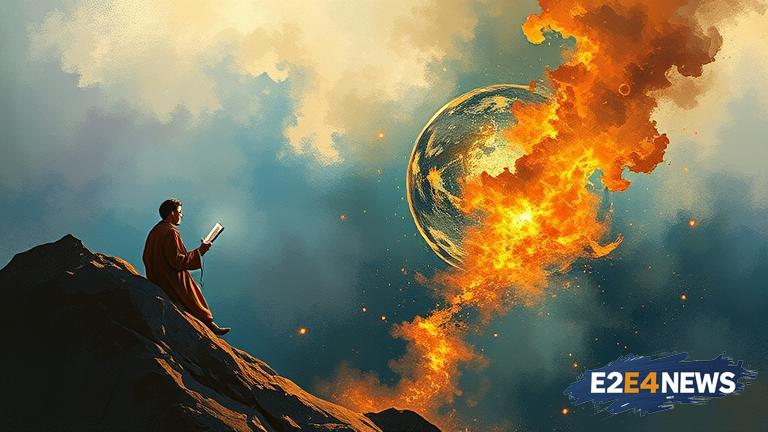The debate about the relationship between faith and science has been ongoing for centuries. Many people believe that faith and science are mutually exclusive, that one cannot exist without the other. However, this is a misconception. Faith and science are not opposing forces, but rather complementary ways of understanding the world. Science provides a framework for understanding the natural world, while faith provides a framework for understanding the spiritual world. In fact, many scientists are also people of faith, and they see no conflict between their scientific work and their spiritual beliefs. The idea that faith and science are in conflict is a relatively recent development, dating back to the Enlightenment. Prior to this time, science and faith were seen as complementary pursuits, with many scientists also being theologians. The ancient Greeks, for example, saw no conflict between their scientific and philosophical pursuits. In fact, many of the greatest scientists in history, such as Isaac Newton and Galileo Galilei, were also deeply religious. They saw their scientific work as a way of understanding the natural world, which they believed was created by God. Today, there are many examples of scientists who are also people of faith. For example, Dr. Francis Collins, the director of the National Institutes of Health, is a devout Christian who sees no conflict between his scientific work and his faith. In fact, he believes that his faith informs his scientific work, and that his scientific work informs his faith. The relationship between faith and science is complex and multifaceted. While there are certainly areas where they may seem to conflict, such as the origins of the universe, there are also many areas where they complement each other. For example, the concept of stewardship, which is central to many faith traditions, is also relevant to scientific pursuits such as environmental science. Additionally, the concept of morality, which is central to many faith traditions, is also relevant to scientific pursuits such as bioethics. In fact, many scientists believe that their faith provides a moral framework for their work, and that it informs their decisions about what research to pursue and how to pursue it. Furthermore, the relationship between faith and science is not just about individual scientists, but also about the broader cultural and societal context in which science is pursued. In many cultures, faith and science are deeply intertwined, and scientists are seen as pursuing a noble and sacred calling. In these cultures, the pursuit of scientific knowledge is seen as a way of understanding and honoring God’s creation. In conclusion, the relationship between faith and science is complex and multifaceted. While there are certainly areas where they may seem to conflict, there are also many areas where they complement each other. By recognizing the harmonious union between faith and science, we can work towards a more nuanced and informed understanding of the world, and pursue scientific knowledge in a way that is respectful and mindful of the spiritual and moral dimensions of human existence. The intersection of faith and science is a rich and fertile area of study, and one that has the potential to yield new insights and understanding. As we continue to explore the natural world and the human experience, we must also continue to explore the relationship between faith and science, and to seek a deeper understanding of how they intersect and inform each other. Ultimately, the harmonious union between faith and science has the potential to enrich our lives and our understanding of the world, and to provide a more complete and nuanced picture of the human experience.
